Some Haitian Americans say U.S. officials should be doing more to help those affected by the gang violence that has turned Port-au-Prince into a war zone.
By Samantha Chery and Emmanuel Felton, The Washington Post —
A few weeks after fleeing Port-au-Prince, Wildor Pierre stood before the congregation at Miami’s Notre Dame d’Haiti Catholic Church and asked for vigilance against the “snakes” rocking Haiti.
The parishioners closed their eyes, bowed their heads and lifted their hands in prayer. In Haiti, their families have told them, water is being sanitized with bleach and food is scarce. Violence haunts their daily lives.
“What I want everyone here to know, no matter how long you’ve been here [in the U.S.] … you are a native Haitian,” Pierre told them in Creole. “What’s happening at home, it concerns you.”
From Miami up to Brooklyn, members of the Haitian diaspora in the United States, more than 1 million people, say they’ve grown increasingly terrified for friends and family members affected by the gang violence that has turned the streets of Port-au-Prince — the capital of the world’s first free Black republic — into a war zone. In recent weeks, dozens of people have been killed and at least 17,000 have been forced from their homes as gangs continue to raid the city’s neighborhoods. The U.S. State Department has begun chartering helicopters to get U.S. citizens out of Haiti to safety in the neighboring Dominican Republic.
But many Haitians in the United States appear divided about what should happen next.
Some worry that Haiti’s crisis is not receiving the same level of attention from U.S. officials as the Ukraine war and the Israel-Hamas conflict in Gaza. “As a taxpayer, my money is going to Ukraine,” said Wildeen Tirone, 33, a special-education coordinator. “And I’m fine with that. All I’m saying is Haiti needs help too. But as the first free Black country in the world, Haiti has never gotten what it deserves.”
Others are wary of more foreign intervention, tracing the island’s problems back to its very founding as a self-governing country in 1804 after a long and bloody war of independence from France.
“Haiti should be able to fly by itself,” said Tony Jean Thenor, a 65-year-old Miami social worker who emigrated in 1980. “We need folks that can tell the American government, ‘Look, this medication you’ve been prescribing us for the last 50 years is not working.’”
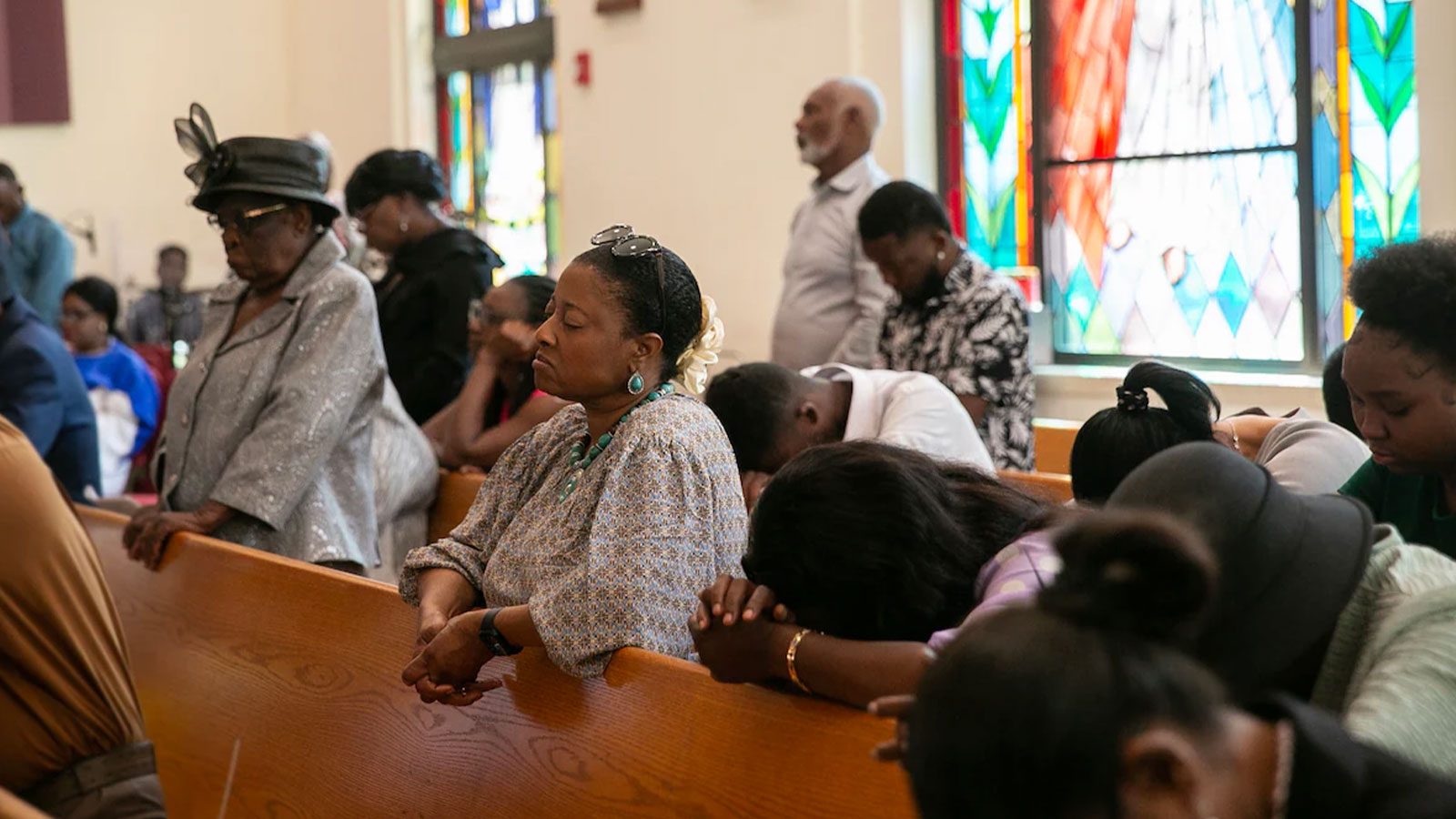
Parishioners worship at Sunday morning Mass at Notre Dame d’Haiti Catholic Church in Miami’s Little Haiti on March 17, 2024. (Reshma Kirpalani/The Washington Post)
The instability comes as some Haitian Americans ponder November’s U.S. elections.
Joel Tirone, Wildeen Tirone’s husband, credits President Biden with launching the Humanitarian Parole Program for Cubans, Haitians, Nicaraguans and Venezuelans looking to escape violence at home. About 30,000 migrants a month can enter the United States under the program, which also allows them to work as long as they have a financial sponsor and can pass background checks.
Joel Tirone, who says he left Haiti in 2016 because of government corruption and settled in the United States, hopes to use that program to bring his mother to the United States.
Yet he also fears that a second Biden term will mean more American interference in Haiti’s affairs and wonders whether returning Donald Trump to the White House could be better for his homeland.
“I think Trump would be better for Haiti because Trump doesn’t want to help other countries,” said Joel Tirone, 36, a therapist and social worker.
Haiti has been devastated by natural disasters, including the 7.0-magnitude earthquake that killed more than 220,000 people in 2010, and political violence that culminated in the 2021 assassination of President Jovenel Moïse. After the assassination, the Biden administration backed Ariel Henry, who was then the acting prime minister, to succeed Moïse. Last month, Henry announced he was stepping down as violence continued to cripple the country. Last year, there were 5,000 homicides in Haiti, which was more than double the number in 2022, according to a recent United Nations report.
The chaos has some worried that the United States is on the verge of yet another migrant crisis. Since early last year, the number of encounters between U.S. Border Patrol and Haitian migrants has been steadily on the rise. The agency has encountered 123,554 Haitian citizens attempting to enter the country during the past six months, compared with 52,233 during the same period a year earlier.
In March, Florida Gov. Ron DeSantis (R) said he was sending more than 250 additional officers and National and Florida State Guard troops to the Florida Keys and southern waters of the state “in anticipation of a potential influx” of immigrants from Haiti entering the United States illegally.
But so far there hasn’t been a significant spike in the number of migrants from Haiti trying to reach the United States on boats, according to John William Beal, a Coast Guard spokesperson. The Coast Guard reported sending back 65 Haitian migrants found on a distressed sailboat near the Bahamas in March.
Nonetheless, migrant advocates warn that if the Biden administration doesn’t open up more legal paths for entry into the country, more Haitians will resort to dangerous sea crossings out of desperation.
People fleeing other countries have been embraced in America in a way that Haitian migrants typically aren’t, said Taisha Saintil, senior policy analyst at UndocuBlack Network, an immigrant advocacy organization led by Black immigrants. “We are asking the administration to completely stop any plan that seeks to … detain Haitian immigrants” attempting to enter the country, she said.
Peterson Demmat, 27, has been safe from Haiti’s violence since August, when he came to North Miami Beach as part of thehumanitarian parole program. But he hasn’t escaped the crisis emotionally.
He checks his phone constantly, waiting for calls from his mother, who’s still in Port-au-Prince. They usually talk two or three times a week, he said, but when he calls and can’t reach her, he worries something terrible has happened. “All of me — all my spirit — all of it stays in Haiti,” he said. “When I hear there’s sad news going on in Haiti … it feels like inside of me, my heart is broken.”
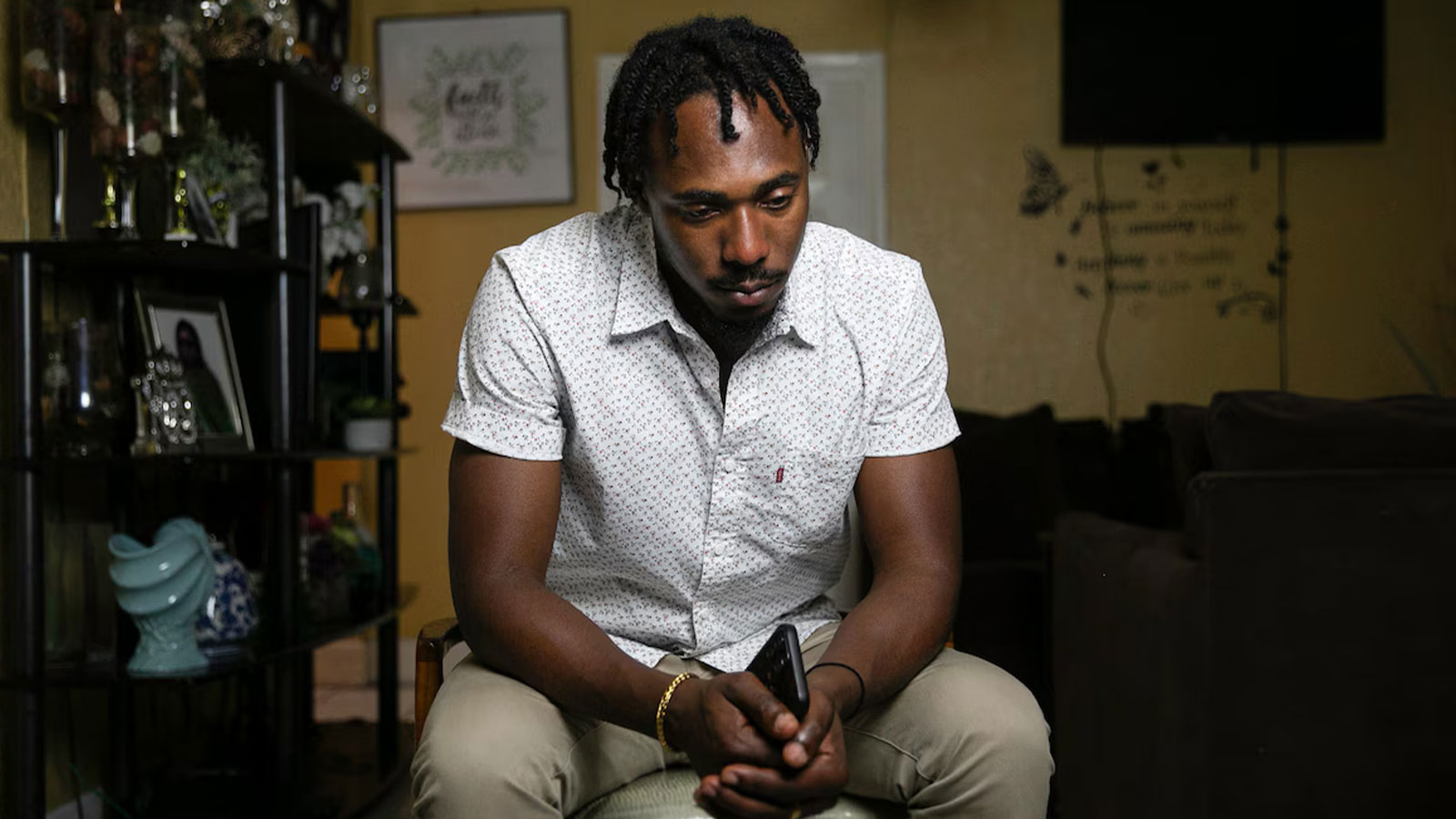
Peterson Demmat sits in his living room in North Miami Beach, waiting for his mother to call from Port-au-Prince. (Reshma Kirpalani/The Washington Post)
The Church of God of Salvation in the Little Haiti section of Brooklyn is a hub for Haitians. Newly arrived migrants in New York can access food, jobs, school and housing at the church, while congregants also pool their money to send to charities they set up on the island.
“People are always talking about what immigrants take, but here we make sure nobody who comes through here ends up on food stamps or welfare,” said Wildeen Tirone. “We set them up to be people who make this country better.”
A group of Democratic lawmakers sent a letter to the Biden administration in March requesting that it extend access to a program known as temporary protected status to Haitian migrants, which allows Haitian nationals currently in the United States to remain and obtain work permits for as long as the island remains unsafe. As of December, almost 165,000 Haitian nationals held TPS status. The program is set to expire in August.
The Department of Homeland Security is monitoring the situation in Haiti, an agency spokesperson, Naree Ketudat, said. But there are no plans to extend the program, Homeland Security Secretary Alejandro Mayorkas recently told the Miami Herald. “Let me be clear that, when we interdict individuals from Haiti at sea, we return them to Haiti as quickly as possible,” he said.
A spokesperson for the National Security Council said the United States hasn’t seen signs of a migrant crisis, so far. The administration is working to find ways to help Haitians stabilize their country, according to the spokesperson, who spoke on the condition of anonymity because they are not authorized to speak publicly.
“It is not up to the United States to solve this crisis,” the official said. “This has to be a Haitian-led, Haitian-driven resolution to the crisis, and that’s what we have been focused on.”
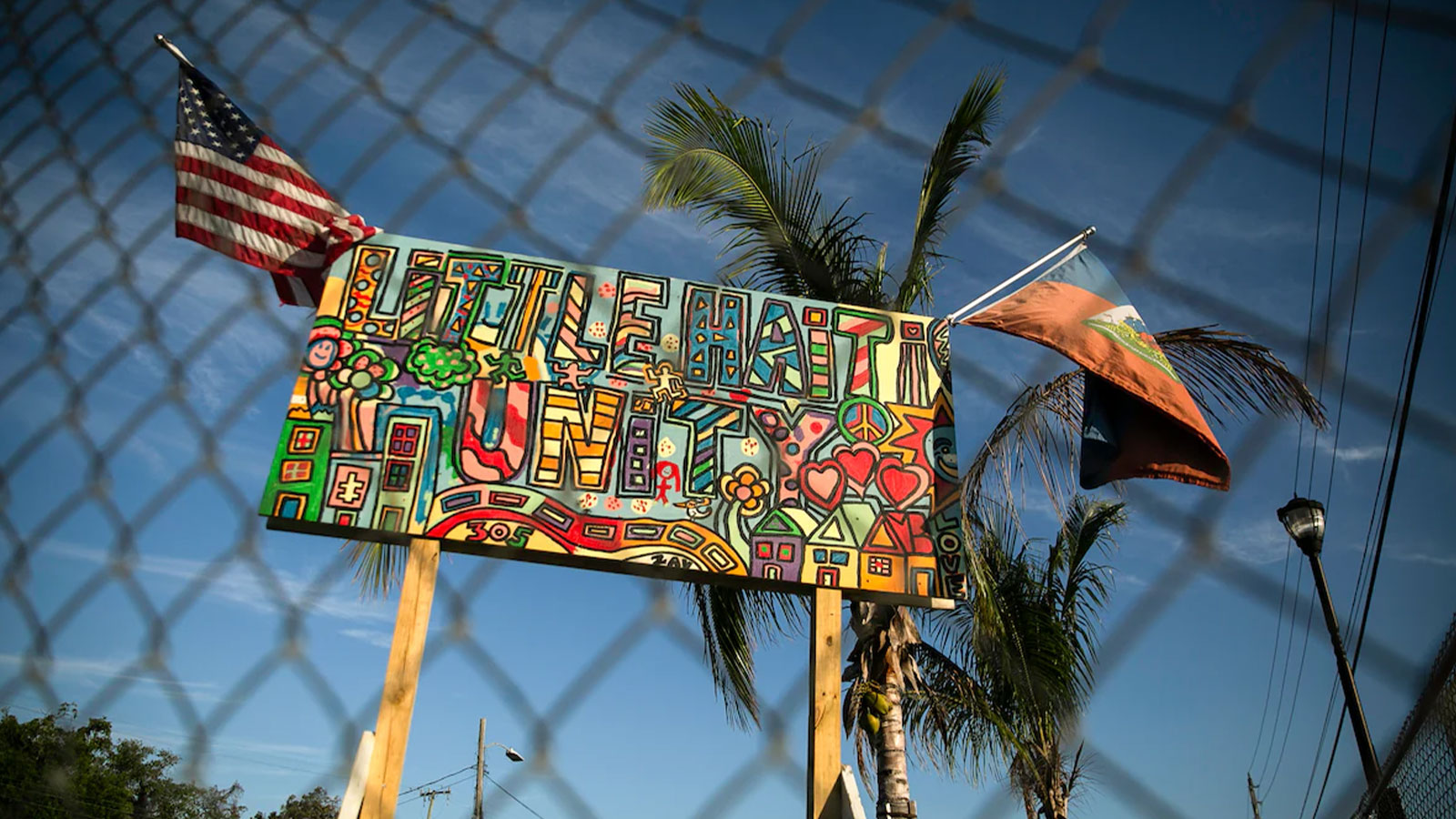
Miami-Dade County is home to an estimated 100,000 Haitians, according to the 2022 American Community Survey. (Reshma Kirpalani/The Washington Post)
Judith Dorlean, 36, came to the United States 30 years ago with her parents and four siblings. While her family still sends food and money to relatives in Port-au-Prince and a smaller community called Thomazeau, their gifts can’t stop the influx of fear that has struck the country. Sometimes, “they can’t sleep or stay in their home because the gangs have taken over some parts,” she said. Other family members have been kidnapped for ransom in recent months, she’s been told by relatives.
It’s hard to say exactly how, or even if, the U.S. government should intervene because Haiti needs to be able to govern itself, Dorlean said. But she has been watching local elected officials to make sure they keep campaign promises to expand programs that would make it easier for Haitian Americans to bring their family members to the United States to live and work.
“The resources that the U.S. would need to provide has to be at the best interest of the Haitian people” rather than serving American interests, Dorlean said.
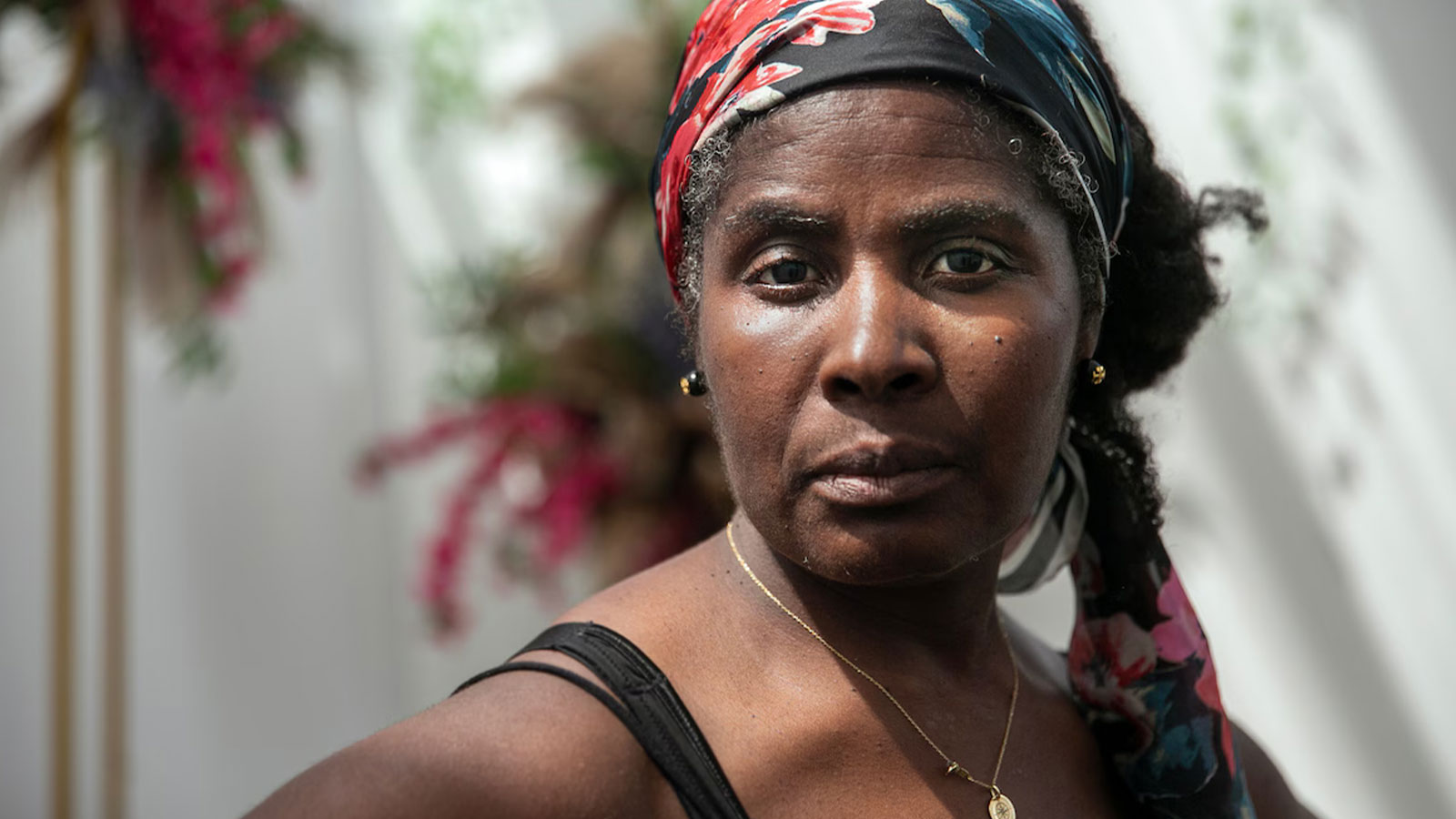
Weiselande “Yanui” Cesar, a 54-year-old artist and instructor who runs Tradisyon Lakou Lakay Inc., roughly translated as “Hometown Traditions,” in Miami’s Little Haiti. (Reshma Kirpalani/The Washington Post)
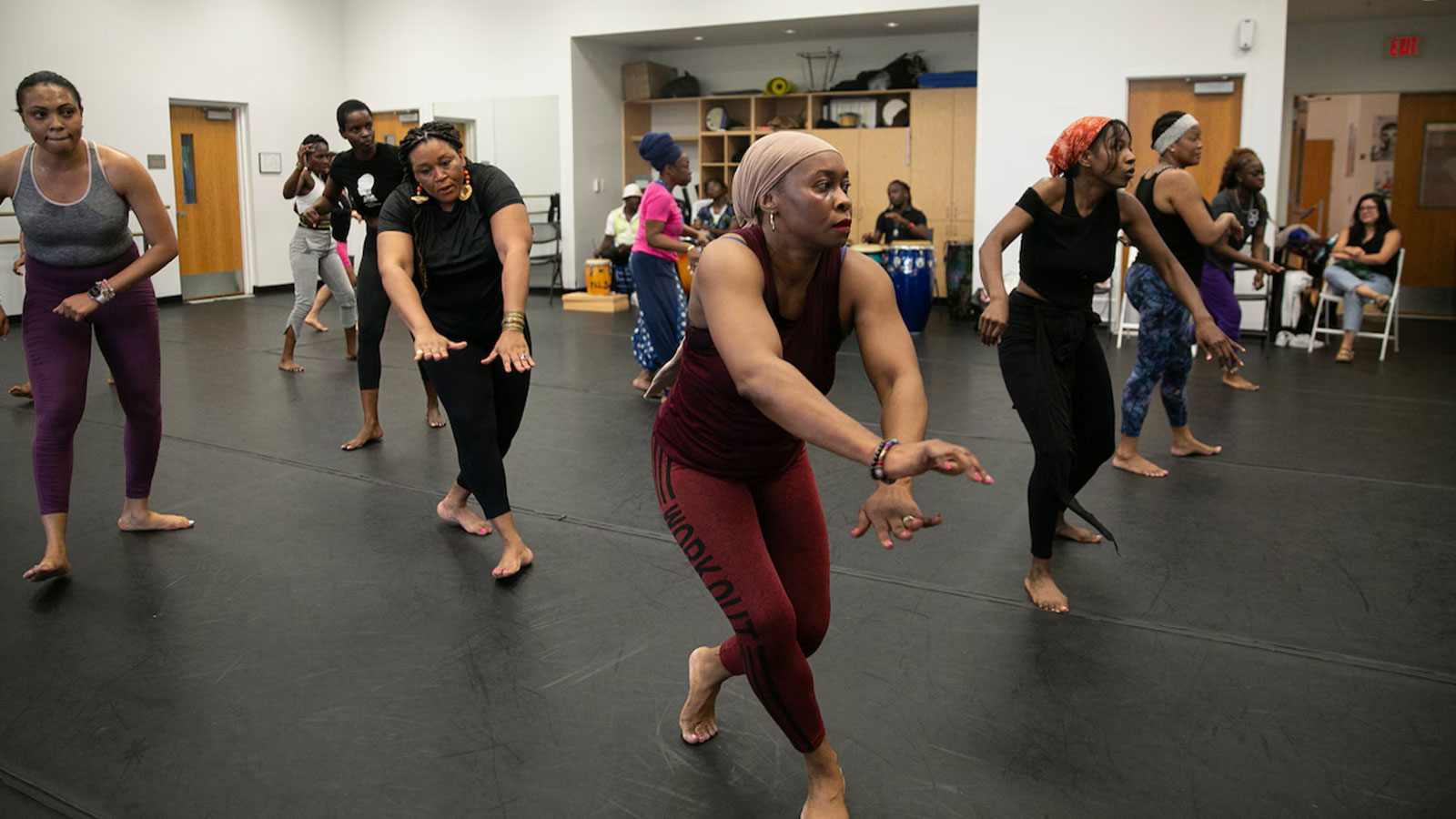
Barbara Jean Baptiste dances at a Haitian folkloric dance class at Tradisyon Lakou Lakay Inc. (Reshma Kirpalani/The Washington Post)
Weiselande “Yanui” Cesar, a 54-year-old artist and instructor living in Miami Shores, vividly remembers the day she and her two sisters were brought to the United States. When their American Airlines flight arrived at LaGuardia Airport in March 1981, they were greeted by their dad, stepmom and uncles, who were holding coats for them to face their first New York winter.
Cesar said she doesn’t recall the exact reason she was “sent for” at age 11, but she imagines it was for the same reason many other Haitian families immigrated to New York at the time: the search for a better life and a good education. The plan was for her to stay just a short time, maybe for high school and college, and then go back home to Haiti.
But with Haiti’s continuing political turmoil, that plan never materialized. Cesar moved with her parents to North Miami after she graduated from high school. Later, she married and had kids in Florida. She had to cancel her last trip back to Haiti, just before the covid-19 pandemic, she said, because the island had once again become too politically volatile.
“For me right now to see Haiti the way it is, it hurts. But it’s also, ‘What can I do?’” said Cesar, who runs Tradisyon Lakou Lakay Inc., roughly translated as “Hometown Traditions,” an arts and culture nonprofit that offers Haitian folkloric dance classes.
“We have that power to take Haiti back,” Cesar said. “Why can’t we do it again?”
Felton reported from New York. Reshma Kirpalani in Miami contributed to this report.
Samantha Chery is a breaking news reporter in Features. Previously, she was a multiplatform editor for The Washington Post’s gender and identity team. She joined The Post in 2022 as a reporting intern for the Features desk
Emmanuel Felton is the race and ethnicity reporter on the America desk at The Washington Post.
Source: The Washington Post














